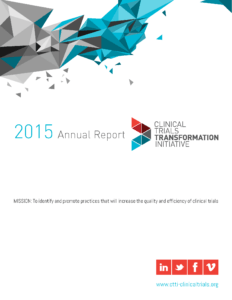The U.S. Department of Health and Human Services (HHS) and 15 other federal departments and agencies have announced proposed revisions to modernize, strengthen, and make more effective the Federal Policy for the Protection of Human Subjects that was promulgated as a Common Rule (45 CFR 46, Subpart A) in 1991. A Notice of Proposed Rulemaking (NPRM) was published in the Federal Register on September 8, 2015 (see the press release).
The NPRM seeks comment on proposals to better protect human subjects involved in research, while facilitating valuable research and reducing burden, delay, and ambiguity for investigators. Comments must be received no later than the extended deadline of 5 pm on January 6, 2016. Visit the HHS page for a summary of the proposed changes and instructions on submitting or browsing comments.
Webinars are available explaining the changes proposed in the NPRM, and a town hall meeting is planned to be held in Washington, DC, in October.
Among the major changes being proposed in order to better protect research subjects and help build public trust are modifications to rules affecting patient informed consent. With regard to informed consent in general (such as consent to participate in a clinical trial), the rules would be significantly tightened to ensure that the process becomes more meaningful. Consent forms in particular would be affected. A common complaint about informed consent forms is that they are often unduly lengthy and cumbersome, with important information often buried and hard to find. Under the proposed changes, such documents would need to be streamlined in ways that provide appropriate details about the research that is most relevant to a person’s decision to participate in the study, such as information a reasonable person would want to know, and present that information in a way that highlights the key information.
The proposed modifications are designed to continue to uphold the ethical principles upon which the Common Rule is based, as applied to the current social, cultural, and technological environment. In brief, the most significant changes proposed in the NPRM include:
- Improve informed consent by increasing transparency and by imposing stricter new requirements regarding the information that must be given to prospective subjects.
- Generally require informed consent for the use of stored biospecimens in secondary research.
- Exclude from coverage under the Common Rule certain categories of activities that should be deemed not to be research, are inherently low risk, or where protections similar to those usually provided by IRB review are separately mandated.
- Add additional categories of exempt research to accommodate changes in the scientific landscape and to better calibrate the level of review to the level of risk involved in the research.
- Change the conditions and requirements for waiver or alteration of consent such that waiver of consent for research involving biospecimens (regardless of identifiability) will occur only in very rare circumstances.
- Mandate that U.S. institutions engaged in cooperative research rely on a single IRB for that portion of the research that takes place within the United States, with certain exceptions.
- Eliminate the continuing review requirement for studies that undergo expedited review and for studies that have completed study interventions and are merely analyzing data or involve only observational follow-up in conjunction with standard clinical care.
- Extend the scope of the policy to cover all clinical trials, regardless of funding source, conducted at a U.S. institution that receives federal funding for non-exempt human subjects research.





 A
A